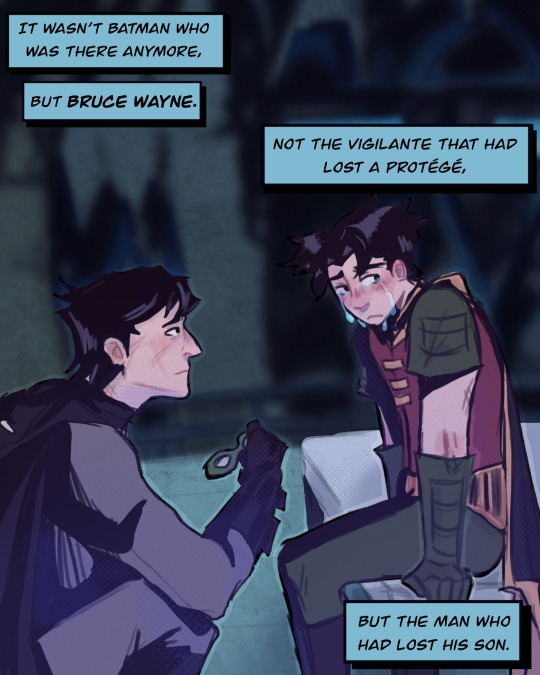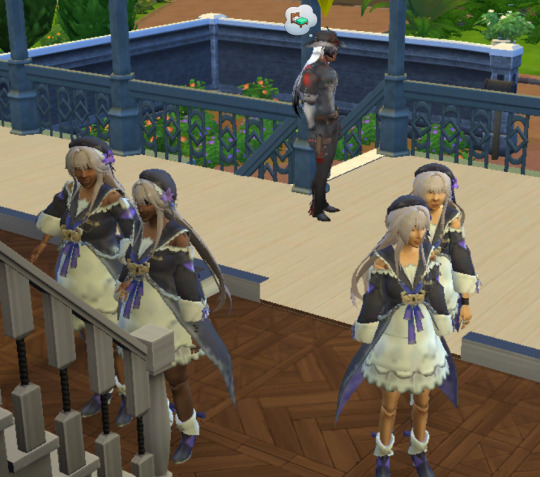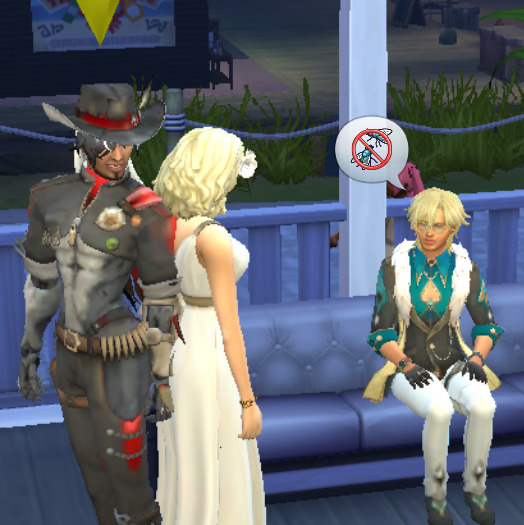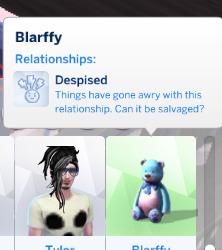#mod robin talks
Explore tagged Tumblr posts
Note
how is asking a genuine question insensitive….
skipping queue cause I would've posted this last night if I looked at the account.
Asking someone you don't know why they hold the opinions they do is always socially unacceptable.
Most anti endos are deeply traumatised, and a lot of us have gone through trauma with endogenics. Asking a question that has huge connotations (why are you anti endo has the effect of questioning our reasons, implying our opinions are wrong, and suggesting that we don't have valid reasons) is a surefire way to cause anxiety in the reader.
There are topics you don't ask people about, this is small talk 101. You don't ask people why they do a thing, if it was an actual genuine question you should word it better.
You don't ask disabled people why they are disabled. You don't ask intersex people what's in their pants. You don't ask POC if they've experienced a hatecrime.
You just don't ask people questions like that, alright. Maybe your friends and shit but I am a stranger. I've said it once and I'll keep saying it: you don't know me, we aren't friends.

14 notes
·
View notes
Text
thinking about the fe awakening baby banner in feh again. they shoulda squeezed sully in there. cuz it’s said in her support with chrom that they literally knew and played with each other in childhood and!!! i kinda wanna see a rambunctious little sully paired up with an equally little chrom. that would have been cute i think :]
#mayor talk#fe#feh#i would sacrifice baby emmeryn from the batch we got#yes i’m heavily biased i want to keep both baby robins for obvious reasons#but i don’t wanna sacrifice lissa cuz she’s cute and i really liked seeing frederick as a boy so… keep him too#but anyway chrom x silly is probably my second favorite ship for chrom#the one i go for when im playing male robin [i don’t have the awakening gay mod]#i do love a good childhood friends to lovers story. even though sully is like the least qualified to be married to a prince LMAO
13 notes
·
View notes
Text
Man I haven't touched P5R in a hot minute and it shows bc i missed these goobers,,,
#robin talks#persona 5#gently holds mishima in my hands baby boy baby#i have the gay joker mod on and i had romanced ryuji bc i am a pegoryu truther but ouuughhhh mishima#GOD HIS VOICE IS SO ADORABLE i would die for him actually#im playing with japanese voices (ive already seen a playthrough w the eng dub) but ough mishima's eng va is good too
7 notes
·
View notes
Text
"yeah, im too lazy to draw backgrounds, gonna download the sims to use as a reference whenever i decide to draw it. gonna add cc because the sims has HORRIBLE furnitute, so im gonna ignore the outfits cc... oh, but this one's cute... eh, gonna download it if i ever decide to pay it for fiteen minutes--" *becomes addicted to it AND downloading useless cc for decoration purposes AND MCCC*
my game is lagging. sims are disappearing. send help. i think my laptop will explode someday.
#robin talking shit again#seriously WHAT DO I DO#MY COUSIN'S LAPTOP HAS LITERALLY EXPLODED (because its a shitty one) AND STILL RUNS THE SIMS BETTER THAN MY MAC WTF IS THIS#definitely the mods#*nods* defiitely the mods#i have like 4000 mods#im so fucked lol
4 notes
·
View notes
Note

Robin love you but what the hell do you want me to do with this
This is the smajor blog where we draw smajor
Do you want me to turn this into Scott smajor???
Why does it exist
2 notes
·
View notes
Text
i dont normally shame ppl abt how they do things in games but if you keep accidentally gifting people things bc you hold important items above your head like ores or whatever thats a skill issue bc WHY would you do that
i saw a reddit post that said they accidentally gifted the alleyway buffet skill book and im just thats a HORRENDOUS skill issue bc you get the book in a TOTALLY SECLUDED AREA so WHY didnt you just read it there. why did you take it out of the SECLUDED AREA where you could accidentally gift it in the first place.
#mod talks#i just.#JUST READ IT. HOLD A TOOL IN YOUR HAND OR SELECT AN EMPTY INVENTORY SLOT#WHY DID YOU DO THAT?????????#sorry thats like one of my biggest pet peeves when i watch other ppl play the game#dude im watching kept gifting robin ores by accident bc he'd hold them while trying to put them away and his chest was behind her#while she was upgrading his house#JUST HOLD YOUR PICKAXE OR SMTH DAMN
1 note
·
View note
Text

There was always a certain shift that happened in Batman whenever he talked to kids that were hurt or scared. He would speak more softly, maybe even kneel down in front of them to personally assure them that they were safe now.
My first piece for this year's @batfam-big-bang! This is a scene from the incredible fic by @fullmetalninjabunny called 'Soft Words Left Unspoken' which you can find here <- 🦇 I had a blast working on this! Thank you so much for having me and also thank you to the mods for a great event <3
Image ID:
An image of Tim Drake as Robin and Bruce Wayne as Batman inside the Batcave. Both characters have their masks off. Tim is sitting on top of a medical bed and is looking to the side with tears streaming down his face. Bruce kneels down in front of him, looking troubled. He is holding Tim’s Mask in his right hand. In the foreground are four boxed captions with the following text, “It wasn’t Batman who was there anymore, but Bruce Wayne. Not the vigilante that had lost a protégé, but the man who has lost his son.”
#batfam big bang 2024#tim drake#bruce wayne#batman#robin#dc comics#my art#digital art#okay but seriously I love me some good old whump and hurt/comfort#and if you do too then check out the fic!! 🔫
4K notes
·
View notes
Text
Hi, huge thanks for doing the cameos! Here’s the asks, but no worries if you can't answer all of them:
What hobbies do you think Charles & Edwin picked up over the years?
C & E go on a 1 week holiday. Where do they go what do they do, etc?
Could you talk about something you like that the other doesn’t like/get?
And could you pretty please say hi to our server mod Nix for being wonderful?
Thanks again for taking the time to do all these, we really appreciate it. We hope you had fun this week! And thank you for being so wonderful in DBD, it really does matter a lot to us. We're excited to see your future projects, love to Raffy and Luna!
197 notes
·
View notes
Text

I was inspired to draw this when Sebastian talked about Robin liking spaghetti and it kinda just randomly hit me that...
that's the way you're supposed to find out likes and dislikes lmaoooo
the text box is a little messy but as long as you don't zoom in, it's great! :D
ALSO ALSO
there are a lot of Yandere mods but isn't the FARMER more of a Yandere than anyone?
IMAGINE
a mod where YOU are the Yandere and the bachelor slowly realizes you know too much about what they like when they just met you and you're getting kinda stalkerish and you know where they are at all times and- ...oh no...
#stardew fanart#stardew farmer#stardew valley#sdv#sdv sebastian#sdv fanart#sdv farmer#please someone consider that mod#no idea how but it's an idea!#SDVBID art
2K notes
·
View notes
Text
Eddie manages the band's TikTok when they are on tour. The content is mostly behind the scenes of them on the road, news about where they will be going next, band practice, jam sessions, etc. The boys have been friends since high school and get along amazingly, like family. But also like shit, just like family. So there are also videos of Eddie laughing while Frank yells at Jeff for farting on his pillow in the tour bus or Eddie filming himself while running as Gareth chases after him for eating the last cookie. HIS last cookie.
The channel is pretty popular even though it doesn't update often. And the links to their merch store and ticket store while on tour, help a lot with the band's expenses. Music being online makes people buy fewer albums and vinyls. And Spotify paying 0,03 cents per song makes being an up-and-coming band that needs money to rent a studio for recording, bus fares, hotel accommodations and to pay the roadies and technicians… kinda hard.
But the TikTok helps! So Chrissy, Eddie's best friend, Gareth's fiance, and their manager, suggests that Eddie keeps the TikTok going while on break from tour.
It doesn't take long to come up with the perfect idea. Restoring Eddie's old van to make it a small house on wheels for road-tripping. But they’ll need a handyman, someone who knows what they are doing.
Luckily, Chrissy has a solution to that. Her cousin Vicky, just came back from traveling the coast on a huge RV with her girlfriend and her girlfriend’s best friend and, according to Vicky, the man is an expert. He built the whole thing himself, from the ground up. So Chrissy tells Vicky, who asks Robin, who talks to Steve, and the meeting is set up.
On the day of the meeting, Eddie parks the van outside his place, sits on the back, and hits record on his phone, “Morning!” he says to the camera, squinting one eye as the sun hits his face because it’s actually noon, “I’m gonna do something fun during the tour break and I wanted to take yall with me. You see, ever since I was young, I've had this dream. Well, other than becoming a musician who can live off his music, thank you for that by the way,” he smiles and tips an invisible hat towards the camera. “The second thing I've always wanted is having one of those built-in movin' houses, a little RV, a camping van, you know the ones” he wiggles his brows and moves the phone a little around him, to show where he’s sitting so people know where he’s going with this.
“Sooo I asked a friend of a friend of a friend, who is an expert on making dreams come true, to help me and we are gonna mod my van. My lovely Haley, my faithful baby, who has been with me since the beginning… I'm scared. This dude better be good.” he laughs nervously.
part two -> 📱💞🚙
And then his focus shifts to something behind his phone, “Oh, here he comes now!” he waves enthusiastically and keeps looking, either forgetting he’s still filming his reaction or too distracted to save face, he squints a little and then frowns, blushes and, chuckles nervously again, “Oh no. he’s hot.”
☕🥐💕 coffee? by the lake's shore?
#stranger things#steddie#eddie munson#steve harrington#corroded coffin#im in a rockstar eddie doing mundane things kick#i wrote something
876 notes
·
View notes
Text
I have this idea for a Stardew mod where it basically adds your parents.
Once you get a phone you can interact with it to call your parents any time between 9am and 9pm (if you call earlier or later they won’t answer because they are asleep). You can have a conversation with either your mom or dad, and once an in-game week, you can tell them about something you’re struggling about.
1. “I’m struggling with money” - the next day they send you an envelope with 500-5000G in it and a cute message
2. “I’m struggling with farming” - the next day they send you five random in-season seeds or 10 hay
3. “I’m struggling with cooking” - your mom sends you a random cooking recipe you don’t know yet
4. “I’m struggling with DIY” - your dad sends you a random DIY recipe you don’t know yet
You can also call them after you get into a relationship, get married, have a child, upgrade your house, complete the community center, complete the Ginger Island, or get a major achievement (such as for example learning all the DIY recipes) to receive special dialogue
And, later in game, you can build an additional cabin through Robin, like you would for multiplayer, and invite them over. They will be at your farm for a week, and act somewhat like spouses do in the game - feed your animals, water your crops, give you food, and tell you they love you. If you have four candles lit at your grandpa’s shrine, the first time your parents come around to your farm afterwards, you get special dialogue about how proud they are and how good this decision was for you. They can also be seen talking to your spouse and/or playing with your kids, as well as walking around town. NPCs would have one dialogue each for seeing your parents around town.
#I have ideas I just don’t have the skills to execute them#stardew valley#stardew valley mods#stardew mods#mods#modding#stardew valley idea#stardew idea
170 notes
·
View notes
Note
Related to last ask by diff anon, do you know any better (non-endo) sites like pluralpedia? Or any projects like that? I just think it would be useful to have a collection of terms n stuff -🦋
I went on a little look and found
Syspedia
Syskid-terms-archive
But I'm opening this up for the community to answer!
#anti endo pluralpedia#anti endo archive#endos dni#anon ask#talking to anons#talking to anon#mod robin
8 notes
·
View notes
Text
I added HSR to my Genshin Sims 4 game and here are some more ridiculous shenanigans over the past few days: (this was all autonomous if you get on my ass about it being out of character you're cringe :3)
- When making the Sims, I purposefully gave Boothill, Aglaea, and Aventurine bugger asses. However, the ass that Sampo NATURALLY GENERATED WITH was even bigger. That just means it's canon now.
- Furina and Robin despise each other and I STILL don't know why.
- Caelus' autogenerated sleep outfit is Dan Heng's outfit. Kind of gay.
- Sparkle got Sampo addicted to ketamine
- Razor smoked a bong WHILE making edibles and then proceeded to eat the edibles while STILL high
- Aventurine practiced making alcoholic beverages for four in game hours and then proceeded to die of starvation (and Boothill couldn't convince the reaper to revive him)



- All of these Sims have so much sex it's fucking ridiculous
- Aventurine had one really bad LSD trip and cried
- Sparkle adopted a cat and it looks like it wants to escape
- March 7th and Sunday became best friends immediately upon meeting each other
- A burglar showed up to the Astral Express. Welt ran away screaming, Caelus tried to beat her up and lost spectacularly, Himeko called the cops, March did not give a fuck, and Stelle stayed asleep the entire time

- Boothill got Aglaea pregnant...Somehow.
- Aventurine reacted to that information like this.

- Have I mentioned how bad Sampo's ketamine addiction is yet? Sunday is not thrilled.
- Itto and Furina got married and it was a glitchy disaster. I had to tell them to get married at the altar about five times before they were finally married.
- On the second attempt to have them married, Razor and Gaming were sleeping together upstairs. And on the third attempt, Razor took a bong rip in the middle of the ceremony.
- Boothill set himself on fire TWICE, and Aventurine put out the fire BOTH times.
- Aventurine also got Aglaea pregnant. At least that one makes sense, given he actually has a dick.
- Baizhu apparently hates everyone except for Wriothesley
- Four Hertas invaded the household and Mr. Reca sold them all drugs

- Welt is apparently friends with the elderly Herta and finds her attractive.
- Boothill also finds one of the Hertas attractive.
- Aventurine almost died of hunger a second time but the game lagged enough that I could have him eat in time.
- Boothill, Wriothesley, and Firefly all constantly want to have kids. Boothill already has two kids.
- Boothill stood behind Aglaea just so he had an excuse to look at her ass.

- Robin invited Boothill out in public, immediately ditched his ass, and Boothill proceeded to do cocaine in the bathroom then go home.
- Boothill got sad because Aventurine was uncomfortable, and then Aventurine got sad because Boothill was sad. This happens a lot.
- Wonweek watches Sampo and Sunday sleep a lot. All the time, like every other night. My dude, chill.
- Every time Sunday and Sampo or Itto and Furina kiss they're actually just shoving their faces in the others' giant pecs because of the height slider mod. It's really funny to look at.
- I'm still not sure if Baizhu and Wriothesley are actually officially boyfriends, still. They literally have max romance and fuck constantly.
- Boothill and Wonweek are beefing with a plush toy.

- Everyone ate Razor's edibles and got incredibly fucked up. I think only Razor (the smallest one in the house) could handle them.
- Boothill has an alarming amount of weed in his inventory. I don't think he's smoked any.
- Robin stole Sampo's grilled cheese sandwich. Boothill then proceeded to steal Sunday's grilled cheese sandwich. I don't know why they're cheese thieves.
- Robin is uncomfortable and sad every time Sparkle is in the room, yet she still chooses to talk with her when she shows up.
- Sampo apparently does not like Aglaea and Aventurine's relationship.

- When Aventurine was still a ghost after dying of starvation, him and Boothill fucked and I got an achievement for it.
- Sampo and Boothill argued about politics over chess, which sounds like it'd end with a bullet wound to a head. Luckily for Sampo, I don't have Extreme Violence installed.
- No words. Just this face.

#tw drugs#rambles with miles#honkai star rail#genshin impact#sims#the sims 4#sims 4#sampo koski#arataki itto#furina de fontaine#caelus hsr#march 7th#welt yang#boothill#boothill hsr#aventurine hsr#sunday hsr#robin hsr#razor genshin#gaming genshin#wriothesley genshin#baizhu genshin impact#himeko hsr#aglaea hsr#stelle hsr#trailblazer#firefly hsr#sparkle hsr#mr reca
83 notes
·
View notes
Text
What if the Vinsmokes were in the Wano Arc?
Go read Part 1 here but TL;DR the Vinsmokes regain their ability to feel emotions and escape Germa with Sanji and the Strawhats.
Mostly headcanons with a side of canon plot.
They’re still modded physically, but now their pain receptors are active so they’re dealing with the ramifications of years of neglecting their body. Ichiji is partially blind from using Valkyrie, Niji has burn marks all over his body, and Yonji has chronic pain in his wrists.��It's a struggle, but they feel like they deserve it after all the torment they inflicted.
Ichiji comes across traditional tattoo shops in Wano and decides to get new tattoos on a whim. The ‘1’ tattoo he had before had been his first rebellion against his father and now that he’s free he wants to add more to it. He gets tattoos for all his siblings along his other arm—a pink butterfly for Reiju, a blue lightning bolt for Niji, a green clover for Yonji and a yellow sun for Sanji. It helps to ground him when the Feelings™ get overwhelming and reminds him that he’s not alone in this world.
The drama in Shokugeki no Sanji with Sanji’s soba stall still happens, only this time he’s backed up by the rest of his siblings who glares at the soba competitors in submission.
Reiju is first in line when the soba stall officially opens. She’d had to fight her brothers and the Strawhats for it. Robin is a close second but only because Reiju was distracted by her. If you know what I mean ;)
The handcuffs left marks on Sanji’s wrists. Surprisingly, it’s Niji who asks why Sanji’s hands are so precious to him and Sanji tells them about Baratie and Zeff. There’s something about the sparkle in Sanji’s eyes as he talks that draws them in, the way he speaks so highly and softly about his found family on the East Blue. They wonder, if somewhere down the line, Sanji would speak about them with that same fond tone.
Niji gifts Sanji a pair of dark brown leather gloves, long enough to cover the marks on his wrist. Sanji wears it to the raid and Niji is quite proud of it and claims he must be Sanji's favorite brother now. Until Ichiji chimes in and says that Sanji’s hairstyle as Stealth Black/Soba Mask is more similar to his and confidently declares himself as Sanji’s favorite brother. Ichiji and Niji argue for hours.
(It’s actually Yonji who's the favorite. Sanji only has one little brother and he’s got a soft spot for him.)
Just imagine Law, Basil Hawkins and X Drake watching Soba Mask. Now imagine them seeing a group of brightly-colored siblings cheering on Soba Mask, while they themselves look like Sparking Red, Electric Blue, Wench Green and Poison Pink. It’s a good day to be a North Blue fanboy in Wano.
AND NOW FOR SOME ANGST!
They witness Sanji awakening his modifications and for a brief moment they’re happy that Sanji caught up to them like he always wanted, until they see the horrified look on Sanji’s face. He looks so afraid to turn out like them, to the point that he’d ask his own crewmate (Zoro) to take him down if he ever ended up like them. They’re not even mad. They’re just sad and guilty that Sanji felt that way.
There’s a brief lull in the battle and Reiju pulls her brothers aside to tell them about their mother and her sacrifice. She told Sanji that story so he’d remember that his life was worth living and being kind. Now she’s telling the same story to Ichiji, Niji and Yonji so they can remember the same thing. Sora wanted them to live and be good.
After his fight with Queen, the brothers hug it out. Reiju may or may not have taken a picture.
Right after that, the brothers now hug Reiju! Because she deserves it alright! Years of pretending for Judge, of keeping her brother's in check and dealing with their mother's death, Reiju did her best to be there for all of them. Now she gets to see her little brothers grow up into the good people their mother wanted them to be and she can finally stop pretending. She can be herself again <3
(I love Reiju sm yall but that's just the eldest daughter syndrome talking)
The road to redemption is paved with triumphs and stumbles. It’s just fortunate for them that Sanji has a good sense of direction.
AND NOW BACK TO FLUFF!
Yonji continues to cement himself as the favorite when he calls Chuji the cutest thing in the world and proceeds to share his snacks with the little guy. Niji and Ichiji never stood a chance. Little brother is strong and is hitting all of Sanji's buttons.
The worst part of regaining emotions though? It’s not the gooey mushy feelings of love, or the cold guilt and shame over their past mistakes, it’s the annoyance they now feel whenever they witness Roronoa Zoro flirt with their oblivious brother. They can’t stand him. Unfortunately, he makes Sanji happy so they’re forced to seethe on the sidelines while Zoro picks another fight/flirting session with Sanji.
Reiju doesn’t tell them that it’s not just Zoro they have to worry about. Trafalgar Law keeps finding an excuse to check Sanji over for his “health”, a jaguar mink keeps asking him out to smoke together, don’t even get her started on Basil Hawkins and X Drake asking her for her blessing. That’s not even counting Sanji’s other suitors who aren’t in Wano right now. Their baby brother is quite the popular guy.
#one piece#vinsmoke siblings#vinsmoke sanji#black leg sanji#vinsmoke ichiji#vinsmoke niji#vinsmoke yonji#vinsmoke reiju#vinsmoke sora#red leg zeff#my posts#roronoa zoro#zosan#sanzo#allsan
446 notes
·
View notes
Text
The disenshittified internet starts with loyal "user agents"

I'm in TARTU, ESTONIA! Overcoming the Enshittocene (TOMORROW, May 8, 6PM, Prima Vista Literary Festival keynote, University of Tartu Library, Struwe 1). AI, copyright and creative workers' labor rights (May 10, 8AM: Science Fiction Research Association talk, Institute of Foreign Languages and Cultures building, Lossi 3, lobby). A talk for hackers on seizing the means of computation (May 10, 3PM, University of Tartu Delta Centre, Narva 18, room 1037).

There's one overwhelmingly common mistake that people make about enshittification: assuming that the contagion is the result of the Great Forces of History, or that it is the inevitable end-point of any kind of for-profit online world.
In other words, they class enshittification as an ideological phenomenon, rather than as a material phenomenon. Corporate leaders have always felt the impulse to enshittify their offerings, shifting value from end users, business customers and their own workers to their shareholders. The decades of largely enshittification-free online services were not the product of corporate leaders with better ideas or purer hearts. Those years were the result of constraints on the mediocre sociopaths who would trade our wellbeing and happiness for their own, constraints that forced them to act better than they do today, even if the were not any better:
https://pluralistic.net/2024/04/24/naming-names/#prabhakar-raghavan
Corporate leaders' moments of good leadership didn't come from morals, they came from fear. Fear that a competitor would take away a disgruntled customer or worker. Fear that a regulator would punish the company so severely that all gains from cheating would be wiped out. Fear that a rival technology – alternative clients, tracker blockers, third-party mods and plugins – would emerge that permanently severed the company's relationship with their customers. Fears that key workers in their impossible-to-replace workforce would leave for a job somewhere else rather than participate in the enshittification of the services they worked so hard to build:
https://pluralistic.net/2024/04/22/kargo-kult-kaptialism/#dont-buy-it
When those constraints melted away – thanks to decades of official tolerance for monopolies, which led to regulatory capture and victory over the tech workforce – the same mediocre sociopaths found themselves able to pursue their most enshittificatory impulses without fear.
The effects of this are all around us. In This Is Your Phone On Feminism, the great Maria Farrell describes how audiences at her lectures profess both love for their smartphones and mistrust for them. Farrell says, "We love our phones, but we do not trust them. And love without trust is the definition of an abusive relationship":
https://conversationalist.org/2019/09/13/feminism-explains-our-toxic-relationships-with-our-smartphones/
I (re)discovered this Farrell quote in a paper by Robin Berjon, who recently co-authored a magnificent paper with Farrell entitled "We Need to Rewild the Internet":
https://www.noemamag.com/we-need-to-rewild-the-internet/
The new Berjon paper is narrower in scope, but still packed with material examples of the way the internet goes wrong and how it can be put right. It's called "The Fiduciary Duties of User Agents":
https://papers.ssrn.com/sol3/papers.cfm?abstract_id=3827421
In "Fiduciary Duties," Berjon focuses on the technical term "user agent," which is how web browsers are described in formal standards documents. This notion of a "user agent" is a holdover from a more civilized age, when technologists tried to figure out how to build a new digital space where technology served users.
A web browser that's a "user agent" is a comforting thought. An agent's job is to serve you and your interests. When you tell it to fetch a web-page, your agent should figure out how to get that page, make sense of the code that's embedded in, and render the page in a way that represents its best guess of how you'd like the page seen.
For example, the user agent might judge that you'd like it to block ads. More than half of all web users have installed ad-blockers, constituting the largest consumer boycott in human history:
https://doc.searls.com/2023/11/11/how-is-the-worlds-biggest-boycott-doing/
Your user agent might judge that the colors on the page are outside your visual range. Maybe you're colorblind, in which case, the user agent could shift the gamut of the colors away from the colors chosen by the page's creator and into a set that suits you better:
https://dankaminsky.com/dankam/
Or maybe you (like me) have a low-vision disability that makes low-contrast type difficult to impossible to read, and maybe the page's creator is a thoughtless dolt who's chosen light grey-on-white type, or maybe they've fallen prey to the absurd urban legend that not-quite-black type is somehow more legible than actual black type:
https://uxplanet.org/basicdesign-never-use-pure-black-in-typography-36138a3327a6
The user agent is loyal to you. Even when you want something the page's creator didn't consider – even when you want something the page's creator violently objects to – your user agent acts on your behalf and delivers your desires, as best as it can.
Now – as Berjon points out – you might not know exactly what you want. Like, you know that you want the privacy guarantees of TLS (the difference between "http" and "https") but not really understand the internal cryptographic mysteries involved. Your user agent might detect evidence of shenanigans indicating that your session isn't secure, and choose not to show you the web-page you requested.
This is only superficially paradoxical. Yes, you asked your browser for a web-page. Yes, the browser defied your request and declined to show you that page. But you also asked your browser to protect you from security defects, and your browser made a judgment call and decided that security trumped delivery of the page. No paradox needed.
But of course, the person who designed your user agent/browser can't anticipate all the ways this contradiction might arise. Like, maybe you're trying to access your own website, and you know that the security problem the browser has detected is the result of your own forgetful failure to renew your site's cryptographic certificate. At that point, you can tell your browser, "Thanks for having my back, pal, but actually this time it's fine. Stand down and show me that webpage."
That's your user agent serving you, too.
User agents can be well-designed or they can be poorly made. The fact that a user agent is designed to act in accord with your desires doesn't mean that it always will. A software agent, like a human agent, is not infallible.
However – and this is the key – if a user agent thwarts your desire due to a fault, that is fundamentally different from a user agent that thwarts your desires because it is designed to serve the interests of someone else, even when that is detrimental to your own interests.
A "faithless" user agent is utterly different from a "clumsy" user agent, and faithless user agents have become the norm. Indeed, as crude early internet clients progressed in sophistication, they grew increasingly treacherous. Most non-browser tools are designed for treachery.
A smart speaker or voice assistant routes all your requests through its manufacturer's servers and uses this to build a nonconsensual surveillance dossier on you. Smart speakers and voice assistants even secretly record your speech and route it to the manufacturer's subcontractors, whether or not you're explicitly interacting with them:
https://www.sciencealert.com/creepy-new-amazon-patent-would-mean-alexa-records-everything-you-say-from-now-on
By design, apps and in-app browsers seek to thwart your preferences regarding surveillance and tracking. An app will even try to figure out if you're using a VPN to obscure your location from its maker, and snitch you out with its guess about your true location.
Mobile phones assign persistent tracking IDs to their owners and transmit them without permission (to its credit, Apple recently switch to an opt-in system for transmitting these IDs) (but to its detriment, Apple offers no opt-out from its own tracking, and actively lies about the very existence of this tracking):
https://pluralistic.net/2022/11/14/luxury-surveillance/#liar-liar
An Android device running Chrome and sitting inert, with no user interaction, transmits location data to Google every five minutes. This is the "resting heartbeat" of surveillance for an Android device. Ask that device to do any work for you and its pulse quickens, until it is emitting a nearly continuous stream of information about your activities to Google:
https://digitalcontentnext.org/blog/2018/08/21/google-data-collection-research/
These faithless user agents both reflect and enable enshittification. The locked-down nature of the hardware and operating systems for Android and Ios devices means that manufacturers – and their business partners – have an arsenal of legal weapons they can use to block anyone who gives you a tool to modify the device's behavior. These weapons are generically referred to as "IP rights" which are, broadly speaking, the right to control the conduct of a company's critics, customers and competitors:
https://locusmag.com/2020/09/cory-doctorow-ip/
A canny tech company can design their products so that any modification that puts the user's interests above its shareholders is illegal, a violation of its copyright, patent, trademark, trade secrets, contracts, terms of service, nondisclosure, noncompete, most favored nation, or anticircumvention rights. Wrap your product in the right mix of IP, and its faithless betrayals acquire the force of law.
This is – in Jay Freeman's memorable phrase – "felony contempt of business model." While more than half of all web users have installed an ad-blocker, thus overriding the manufacturer's defaults to make their browser a more loyal agent, no app users have modified their apps with ad-blockers.
The first step of making such a blocker, reverse-engineering the app, creates criminal liability under Section 1201 of the Digital Millennium Copyright Act, with a maximum penalty of five years in prison and a $500,000 fine. An app is just a web-page skinned in sufficient IP to make it a felony to add an ad-blocker to it (no wonder every company wants to coerce you into using its app, rather than its website).
If you know that increasing the invasiveness of the ads on your web-page could trigger mass installations of ad-blockers by your users, it becomes irrational and self-defeating to ramp up your ads' invasiveness. The possibility of interoperability acts as a constraint on tech bosses' impulse to enshittify their products.
The shift to platforms dominated by treacherous user agents – apps, mobile ecosystems, walled gardens – weakens or removes that constraint. As your ability to discipline your agent so that it serves you wanes, the temptation to turn your user agent against you grows, and enshittification follows.
This has been tacitly understood by technologists since the web's earliest days and has been reaffirmed even as enshittification increased. Berjon quotes extensively from "The Internet Is For End-Users," AKA Internet Architecture Board RFC 8890:
Defining the user agent role in standards also creates a virtuous cycle; it allows multiple implementations, allowing end users to switch between them with relatively low costs (…). This creates an incentive for implementers to consider the users' needs carefully, which are often reflected into the defining standards. The resulting ecosystem has many remaining problems, but a distinguished user agent role provides an opportunity to improve it.
And the W3C's Technical Architecture Group echoes these sentiments in "Web Platform Design Principles," which articulates a "Priority of Constituencies" that is supposed to be central to the W3C's mission:
User needs come before the needs of web page authors, which come before the needs of user agent implementors, which come before the needs of specification writers, which come before theoretical purity.
https://w3ctag.github.io/design-principles/
But the W3C's commitment to faithful agents is contingent on its own members' commitment to these principles. In 2017, the W3C finalized "EME," a standard for blocking mods that interact with streaming videos. Nominally aimed at preventing copyright infringement, EME also prevents users from choosing to add accessibility add-ons that beyond the ones the streaming service permits. These services may support closed captioning and additional narration of visual elements, but they block tools that adapt video for color-blind users or prevent strobe effects that trigger seizures in users with photosensitive epilepsy.
The fight over EME was the most contentious struggle in the W3C's history, in which the organization's leadership had to decide whether to honor the "priority of constituencies" and make a standard that allowed users to override manufacturers, or whether to facilitate the creation of faithless agents specifically designed to thwart users' desires on behalf of manufacturers:
https://www.eff.org/deeplinks/2017/09/open-letter-w3c-director-ceo-team-and-membership
This fight was settled in favor of a handful of extremely large and powerful companies, over the objections of a broad collection of smaller firms, nonprofits representing users, academics and other parties agitating for a web built on faithful agents. This coincided with the W3C's operating budget becoming entirely dependent on the very large sums its largest corporate members paid.
W3C membership is on a sliding scale, based on a member's size. Nominally, the W3C is a one-member, one-vote organization, but when a highly concentrated collection of very high-value members flex their muscles, W3C leadership seemingly perceived an existential risk to the organization, and opted to sacrifice the faithfulness of user agents in service to the anti-user priorities of its largest members.
For W3C's largest corporate members, the fight was absolutely worth it. The W3C's EME standard transformed the web, making it impossible to ship a fully featured web-browser without securing permission – and a paid license – from one of the cartel of companies that dominate the internet. In effect, Big Tech used the W3C to secure the right to decide who would compete with them in future, and how:
https://blog.samuelmaddock.com/posts/the-end-of-indie-web-browsers/
Enshittification arises when the everyday mediocre sociopaths who run tech companies are freed from the constraints that act against them. When the web – and its browsers – were a big, contented, diverse, competitive space, it was harder for tech companies to collude to capture standards bodies like the W3C to secure even more dominance. As the web turned into Tom Eastman's "five giant websites filled with screenshots of text from the other four," that kind of collusion became much easier:
https://pluralistic.net/2023/04/18/cursed-are-the-sausagemakers/#how-the-parties-get-to-yes
In arguing for faithful agents, Berjon associates himself with the group of scholars, regulators and activists who call for user agents to serve as "information fiduciaries." Mostly, information fiduciaries come up in the context of user privacy, with the idea that entities that hold a user's data would have the obligation to put the user's interests ahead of their own. Think of a lawyer's fiduciary duty in respect of their clients, to give advice that reflects the client's best interests, even when that conflicts with the lawyer's own self-interest. For example, a lawyer who believes that settling a case is the best course of action for a client is required to tell them so, even if keeping the case going would generate more billings for the lawyer and their firm.
For a user agent to be faithful, it must be your fiduciary. It must put your interests ahead of the interests of the entity that made it or operates it. Browsers, email clients, and other internet software that served as a fiduciary would do things like automatically blocking tracking (which most email clients don't do, especially webmail clients made by companies like Google, who also sell advertising and tracking).
Berjon contemplates a legally mandated fiduciary duty, citing Lindsey Barrett's "Confiding in Con Men":
https://papers.ssrn.com/sol3/papers.cfm?abstract_id=3354129
He describes a fiduciary duty as a remedy for the enforcement failures of EU's GDPR, a solidly written, and dismally enforced, privacy law. A legally backstopped duty for agents to be fiduciaries would also help us distinguish good and bad forms of "innovation" – innovation in ways of thwarting a user's will are always bad.
Now, the tech giants insist that they are already fiduciaries, and that when they thwart a user's request, that's more like blocking access to a page where the encryption has been compromised than like HAL9000's "I can't let you do that, Dave." For example, when Louis Barclay created "Unfollow Everything," he (and his enthusiastic users) found that automating the process of unfollowing every account on Facebook made their use of the service significantly better:
https://slate.com/technology/2021/10/facebook-unfollow-everything-cease-desist.html
When Facebook shut the service down with blood-curdling legal threats, they insisted that they were simply protecting users from themselves. Sure, this browser automation tool – which just automatically clicked links on Facebook's own settings pages – seemed to do what the users wanted. But what if the user interface changed? What if so many users added this feature to Facebook without Facebook's permission that they overwhelmed Facebook's (presumably tiny and fragile) servers and crashed the system?
These arguments have lately resurfaced with Ethan Zuckerman and Knight First Amendment Institute's lawsuit to clarify that "Unfollow Everything 2.0" is legal and doesn't violate any of those "felony contempt of business model" laws:
https://pluralistic.net/2024/05/02/kaiju-v-kaiju/
Sure, Zuckerman seems like a good guy, but what if he makes a mistake and his automation tool does something you don't want? You, the Facebook user, are also a nice guy, but let's face it, you're also a naive dolt and you can't be trusted to make decisions for yourself. Those decisions can only be made by Facebook, whom we can rely upon to exercise its authority wisely.
Other versions of this argument surfaced in the debate over the EU's decision to mandate interoperability for end-to-end encrypted (E2EE) messaging through the Digital Markets Act (DMA), which would let you switch from, say, Whatsapp to Signal and still send messages to your Whatsapp contacts.
There are some good arguments that this could go horribly awry. If it is rushed, or internally sabotaged by the EU's state security services who loathe the privacy that comes from encrypted messaging, it could expose billions of people to serious risks.
But that's not the only argument that DMA opponents made: they also argued that even if interoperable messaging worked perfectly and had no security breaches, it would still be bad for users, because this would make it impossible for tech giants like Meta, Google and Apple to spy on message traffic (if not its content) and identify likely coordinated harassment campaigns. This is literally the identical argument the NSA made in support of its "metadata" mass-surveillance program: "Reading your messages might violate your privacy, but watching your messages doesn't."
This is obvious nonsense, so its proponents need an equally obviously intellectually dishonest way to defend it. When called on the absurdity of "protecting" users by spying on them against their will, they simply shake their heads and say, "You just can't understand the burdens of running a service with hundreds of millions or billions of users, and if I even tried to explain these issues to you, I would divulge secrets that I'm legally and ethically bound to keep. And even if I could tell you, you wouldn't understand, because anyone who doesn't work for a Big Tech company is a naive dolt who can't be trusted to understand how the world works (much like our users)."
Not coincidentally, this is also literally the same argument the NSA makes in support of mass surveillance, and there's a very useful name for it: scalesplaining.
Now, it's totally true that every one of us is capable of lapses in judgment that put us, and the people connected to us, at risk (my own parents gave their genome to the pseudoscience genetic surveillance company 23andme, which means they have my genome, too). A true information fiduciary shouldn't automatically deliver everything the user asks for. When the agent perceives that the user is about to put themselves in harm's way, it should throw up a roadblock and explain the risks to the user.
But the system should also let the user override it.
This is a contentious statement in information security circles. Users can be "socially engineered" (tricked), and even the most sophisticated users are vulnerable to this:
https://pluralistic.net/2024/02/05/cyber-dunning-kruger/#swiss-cheese-security
The only way to be certain a user won't be tricked into taking a course of action is to forbid that course of action under any circumstances. If there is any means by which a user can flip the "are you very sure?" circuit-breaker back on, then the user can be tricked into using that means.
This is absolutely true. As you read these words, all over the world, vulnerable people are being tricked into speaking the very specific set of directives that cause a suspicious bank-teller to authorize a transfer or cash withdrawal that will result in their life's savings being stolen by a scammer:
https://www.thecut.com/article/amazon-scam-call-ftc-arrest-warrants.html
We keep making it harder for bank customers to make large transfers, but so long as it is possible to make such a transfer, the scammers have the means, motive and opportunity to discover how the process works, and they will go on to trick their victims into invoking that process.
Beyond a certain point, making it harder for bank depositors to harm themselves creates a world in which people who aren't being scammed find it nearly impossible to draw out a lot of cash for an emergency and where scam artists know exactly how to manage the trick. After all, non-scammers only rarely experience emergencies and thus have no opportunity to become practiced in navigating all the anti-fraud checks, while the fraudster gets to run through them several times per day, until they know them even better than the bank staff do.
This is broadly true of any system intended to control users at scale – beyond a certain point, additional security measures are trivially surmounted hurdles for dedicated bad actors and as nearly insurmountable hurdles for their victims:
https://pluralistic.net/2022/08/07/como-is-infosec/
At this point, we've had a couple of decades' worth of experience with technological "walled gardens" in which corporate executives get to override their users' decisions about how the system should work, even when that means reaching into the users' own computer and compelling it to thwart the user's desire. The record is inarguable: while companies often use those walls to lock bad guys out of the system, they also use the walls to lock their users in, so that they'll be easy pickings for the tech company that owns the system:
https://pluralistic.net/2023/02/05/battery-vampire/#drained
This is neatly predicted by enshittification's theory of constraints: when a company can override your choices, it will be irresistibly tempted to do so for its own benefit, and to your detriment.
What's more, the mere possibility that you can override the way the system works acts as a disciplining force on corporate executives, forcing them to reckon with your priorities even when these are counter to their shareholders' interests. If Facebook is genuinely worried that an "Unfollow Everything" script will break its servers, it can solve that by giving users an unfollow everything button of its own design. But so long as Facebook can sue anyone who makes an "Unfollow Everything" tool, they have no reason to give their users such a button, because it would give them more control over their Facebook experience, including the controls needed to use Facebook less.
It's been more than 20 years since Seth Schoen and I got a demo of Microsoft's first "trusted computing" system, with its "remote attestations," which would let remote servers demand and receive accurate information about what kind of computer you were using and what software was running on it.
This could be beneficial to the user – you could send a "remote attestation" to a third party you trusted and ask, "Hey, do you think my computer is infected with malicious software?" Since the trusted computing system produced its report on your computer using a sealed, separate processor that the user couldn't directly interact with, any malicious code you were infected with would not be able to forge this attestation.
But this remote attestation feature could also be used to allow Microsoft to block you from opening a Word document with Libreoffice, Apple Pages, or Google Docs, or it could be used to allow a website to refuse to send you pages if you were running an ad-blocker. In other words, it could transform your information fiduciary into a faithless agent.
Seth proposed an answer to this: "owner override," a hardware switch that would allow you to force your computer to lie on your behalf, when that was beneficial to you, for example, by insisting that you were using Microsoft Word to open a document when you were really using Apple Pages:
https://web.archive.org/web/20021004125515/http://vitanuova.loyalty.org/2002-07-05.html
Seth wasn't naive. He knew that such a system could be exploited by scammers and used to harm users. But Seth calculated – correctly! – that the risks of having a key to let yourself out of the walled garden were less than being stuck in a walled garden where some corporate executive got to decide whether and when you could leave.
Tech executives never stopped questing after a way to turn your user agent from a fiduciary into a traitor. Last year, Google toyed with the idea of adding remote attestation to web browsers, which would let services refuse to interact with you if they thought you were using an ad blocker:
https://pluralistic.net/2023/08/02/self-incrimination/#wei-bai-bai
The reasoning for this was incredible: by adding remote attestation to browsers, they'd be creating "feature parity" with apps – that is, they'd be making it as practical for your browser to betray you as it is for your apps to do so (note that this is the same justification that the W3C gave for creating EME, the treacherous user agent in your browser – "streaming services won't allow you to access movies with your browser unless your browser is as enshittifiable and authoritarian as an app").
Technologists who work for giant tech companies can come up with endless scalesplaining explanations for why their bosses, and not you, should decide how your computer works. They're wrong. Your computer should do what you tell it to do:
https://www.eff.org/deeplinks/2023/08/your-computer-should-say-what-you-tell-it-say-1
These people can kid themselves that they're only taking away your power and handing it to their boss because they have your best interests at heart. As Upton Sinclair told us, it's impossible to get someone to understand something when their paycheck depends on them not understanding it.
The only way to get a tech boss to consistently treat you well is to ensure that if they stop, you can quit. Anything less is a one-way ticket to enshittification.

If you'd like an essay-formatted version of this post to read or share, here's a link to it on pluralistic.net, my surveillance-free, ad-free, tracker-free blog:
https://pluralistic.net/2024/05/07/treacherous-computing/#rewilding-the-internet

Image: Cryteria (modified) https://commons.wikimedia.org/wiki/File:HAL9000.svg
CC BY 3.0 https://creativecommons.org/licenses/by/3.0/deed.en
#pluralistic#maria farrell#scalesplaining#user agents#eme#w3c#sdos#scholarship#information fiduciary#the internet is for end users#ietf#delegation#bootlickers#unfollow everything#remote attestation#browsers#treacherous computing#enshittification#snitch chips#Robin Berjon#rewilding the internet
345 notes
·
View notes
Note
Silly 🫵
I am silly, it's a curse 😔
1 note
·
View note